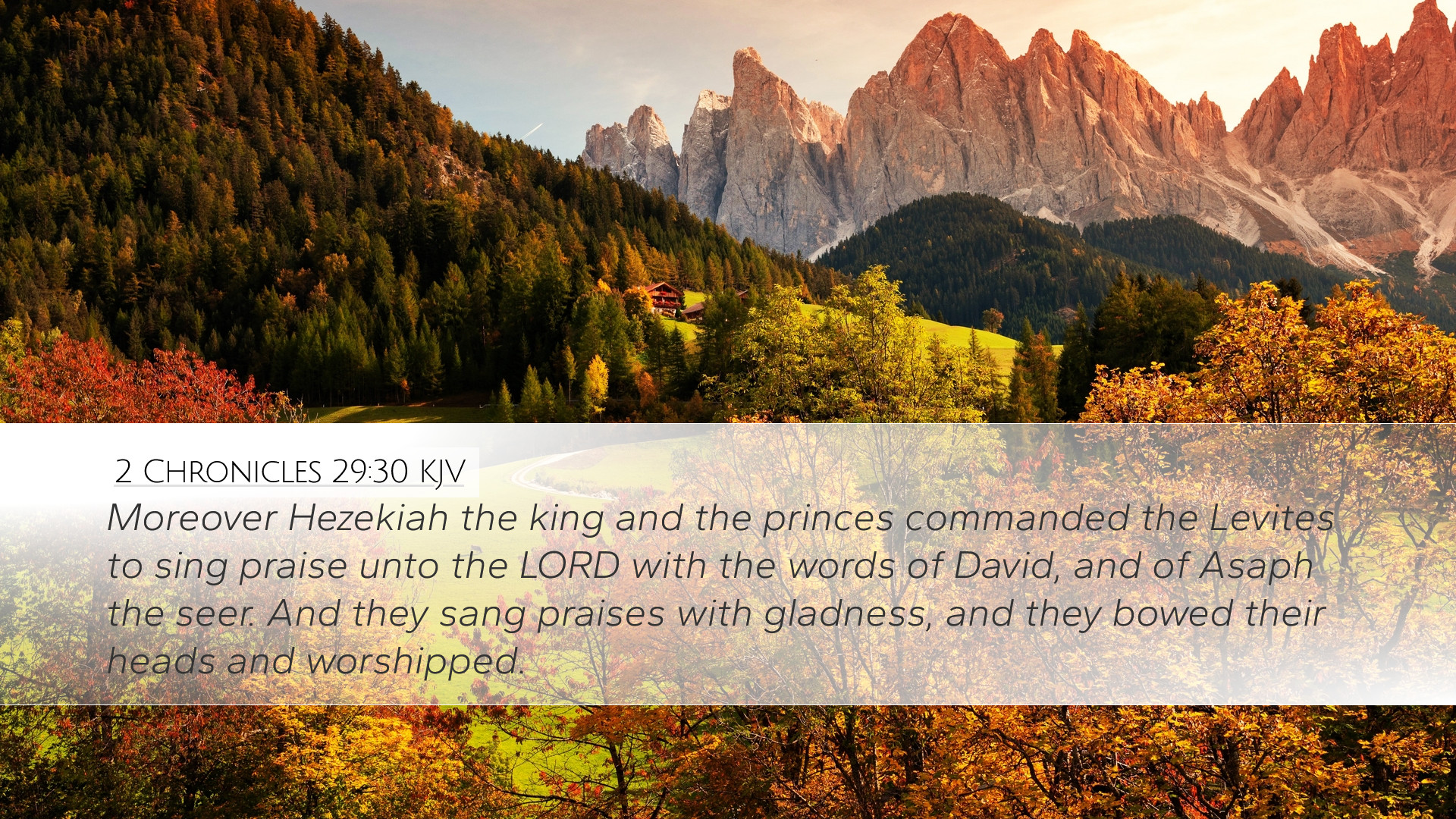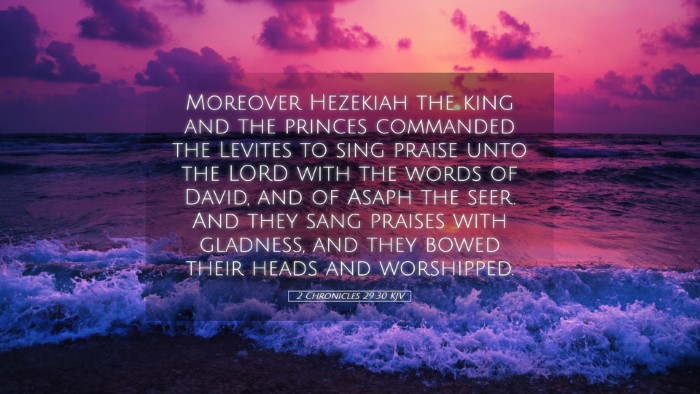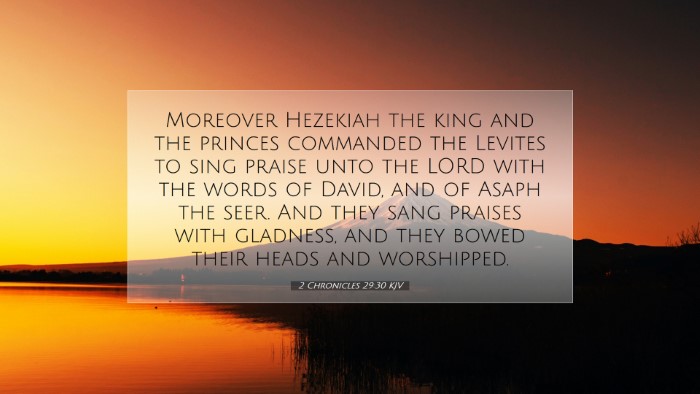Commentary on 2 Chronicles 29:30
2 Chronicles 29:30 states: "Moreover Hezekiah the king and the princes commanded the Levites to sing praise unto the Lord with the words of David, and of Asaph the seer. And they sang praises with gladness, and they bowed their heads and worshipped." This verse encapsulates a significant moment in the restoration of worship in the temple during King Hezekiah's reign. The text informs us about the orders given to the Levites to engage in praise and worship, highlighting the centrality of music and exaltation in the spiritual life of Israel.
Historical Context
The reign of Hezekiah marked a pivotal point in the history of Judah. Following years of neglect and the idolatrous practices of previous kings, Hezekiah sought to cleanse the temple and return to the worship of the true God. This verse occurs in the context of a restoration of temple worship, where King Hezekiah played a vital role in re-establishing the religious practices that were fundamental to the Israelite identity.
Thematic Significance
1. The Authority of Leadership: The directive from Hezekiah and the princes underscores the role of spiritual leadership in guiding the community back to God. It is a reminder that leaders are tasked with promoting worship and righteousness.
2. Music and Worship: The emphasis on singing praises refers not only to the act of music but also to the heart and attitude behind worship. As Matthew Henry notes, singing is a way to express joy and reverence toward God, making it a vital part of worship life.
Insights from Public Domain Commentaries
Matthew Henry Commentary
Henry elaborates on the significance of worship through music as a form of praise that aligns with God’s commandments. He observes that the specific mention of the words of David and Asaph reflects a historical continuity and an acknowledgment of past leaders' contributions to worship. The act of singing not only serves to glorify God but also unites those participating in worship.
Albert Barnes Notes
Barnes emphasizes the cultural context of music in worship. He states that the Levites were given prominence due to their designated roles in temple worship. He adds that their singing with gladness reflects hearts that are aligned with God. The act of bowing their heads in worship signifies humility and reverence before the Almighty.
Adam Clarke's Commentary
Clarke provides a detailed analysis of the phrase "with gladness" and highlights that worship must come from joyful hearts. He asserts that true worshippers should engage with both emotion and understanding. Clarke also points out the historical implications of Asaph’s involvement, noting how the tradition of music in worship rooted back to established figures like David, reminding worshippers of their legacy.
Practical Applications
- Leadership in Worship: Pastors and spiritual leaders must actively cultivate an environment that encourages joyful worship and congregational participation.
- Value of Music: Music holds a transformative power in worship—it should be recognized as a vehicle for theological education and communal expression of faith.
- Attitude of Worship: Encourage a posture of humility and joy in worship services, ensuring that congregants understand the importance of intention behind their songs.
Conclusion
2 Chronicles 29:30 serves as a reminder of the vital role worship plays in the life of the Church. By combining insights from historical leaders like Hezekiah with the wisdom of ancient texts, we can draw practical lessons on how to engage in authentic worship today. Let us be inspired to lead and participate in worship that is not only rooted in tradition but also filled with the joy and reverence that truly honors God.


